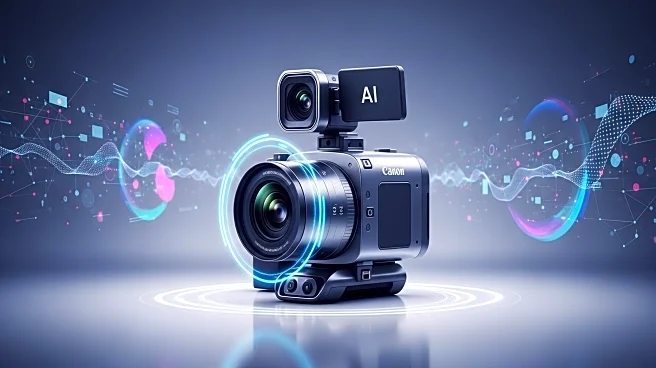What's Happening?
OpenAI and Meta have launched new AI video tools, Sora 2 and Vibes, respectively, that allow users to create sophisticated AI-generated videos. Sora 2, which quickly became popular on Apple's app store, enables users to create videos featuring themselves or others with permission. Meta's Vibes offers a similar experience, focusing on AI-generated content. These tools represent a new era for social media, allowing non-experts to produce high-quality videos. However, concerns have been raised about the potential for low-quality 'AI slop' and deepfake content, prompting discussions about the need for safeguards.
Why It's Important?
The introduction of these AI tools marks a significant shift in content creation, democratizing video production and potentially transforming social media landscapes. While offering creative opportunities, these tools also raise ethical and security concerns, particularly regarding the authenticity of content. The ability to generate realistic videos could impact industries beyond entertainment, including advertising and education. As AI technology advances, the balance between innovation and regulation will be crucial to address potential misuse and ensure responsible use.
What's Next?
As these tools gain traction, tech companies will need to implement robust safeguards to prevent misuse and protect intellectual property rights. The response from industry stakeholders, including content creators and regulators, will shape the future of AI-generated content. Ongoing discussions about ethical guidelines and industry standards will be essential to navigate the challenges posed by these advancements. The evolution of AI video tools will likely influence broader debates about the role of technology in creative industries.









